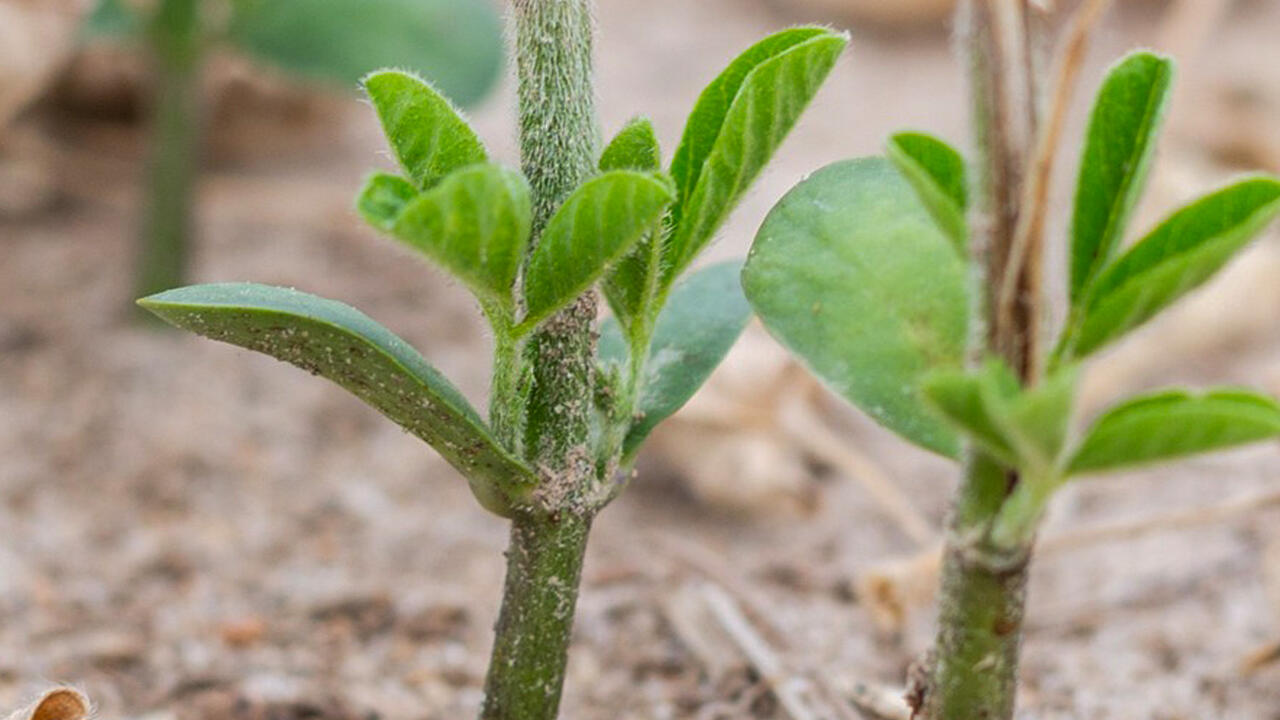STARKVILLE, Miss. -- Insects, disease and weather are the typical challenges to row crops, but Mississippi growers also have to consider deer when analyzing what can harm a crop.
Mississippi, home to an estimated 1.75 million white-tailed deer, has the densest deer population in the U.S. The entire state is the deer’s natural habitat, and they are found in cities, forestland and cropland. Hunters help control the deer population, harvesting about 280,000 deer annually. Yet many drivers encounter deer on the state’s roadways year-round.
Jacob Dykes, deer specialist with the Mississippi State University Extension Service, said white-tailed deer are herbivores, and their diet consists of a variety of plants that change depending on the season and availability of food sources.
“Soybeans are an important supplemental resource for deer, especially during nutritionally stressful periods like late summer when bucks are growing antlers and does are feeding fawns,” Dykes said. “Problems occur when the deer population exceeds what natural foods can support. At that point, deer increasingly rely on row crops, which leads to crop damage.”
Deer crop depredation is when deer eat an item to the point that it causes damage. Examples may include deer eating landscape shrubs and flowers or grazing home vegetable gardens, and on a larger scale, feeding heavily on row crops.
Justin Calhoun, Extension soybean specialist, said it is widely assumed that soybeans are deer’s favorite row crop.
“Deer damage is one of our more significant, pressing issues in soybean production and all row crops,” Calhoun said. “We have more problems with deer in the Hill region, but we are hearing more about issues in the Delta as well.”
Brian Pieralisi, Extension cotton specialist, said deer depredation is an issue in cotton, but it appears deer need repeated exposure to the crop before they begin to browse on it.
“I planted cotton in tandem with soybeans in an area that is not accustomed to cotton. The deer were reluctant at first, then began to forage, but not like they would on soybeans,” Pieralisi said. “However, in other places in the state, I’ve seen deer depredation on cotton equally as severe as on soybeans.”
Continuous deer feeding on a field can cause severe yield loss, but Pieralisi said deer depredation should be viewed relative to the field.
“We consider edge effects from tree lines and insect pressure; deer pressure should be viewed similarly,” he said.
Erick Larson, Extension grain crops agronomist, said deer depredation in corn is rare and usually isolated in high deer density areas with limited food options.
“Hog predation and damage can be a major issue for corn growers in areas where they exist,” Larson said. “Hogs can cause catastrophic damage after planting and during establishment by rooting and eating seeds out of the ground. They also may wallow down and eat corn from the ears as the grain matures prior to harvest as well.”
Deer occasionally feed on rice, but they are a relatively incidental concern in this crop, said Will Eubank, Extension rice specialist.
Calhoun said ongoing studies are addressing the issue of deer damage to crops, and more studies are slated for the future. These include evaluating the timing of feeding relative to soybean growth stage and varying levels of defoliation from feeding to determine their impact on the yield potential of soybeans.
“This is being done to identify key growth stages that are critical to protect soybean from deer so that future projects can focus on mitigating deer pressure during those periods,” he said.
Those involved in current and planned deer depredation studies include Dykes, Calhoun, Pieralisi, Larson, Eubank, as well as Brendan Zurweller, Extension peanut specialist, and Whitney Crow, an Extension entomologist.
Contacts
-
 Assistant Professor
Assistant Professor- Plant and Soil Sciences
-
 Extension/Research Professor
Extension/Research Professor- Plant and Soil Sciences
-
 Assistant Professor
Assistant Professor- Wildlife, Fisheries & Aquaculture
-
 Assistant Professor
Assistant Professor- Plant and Soil Sciences
